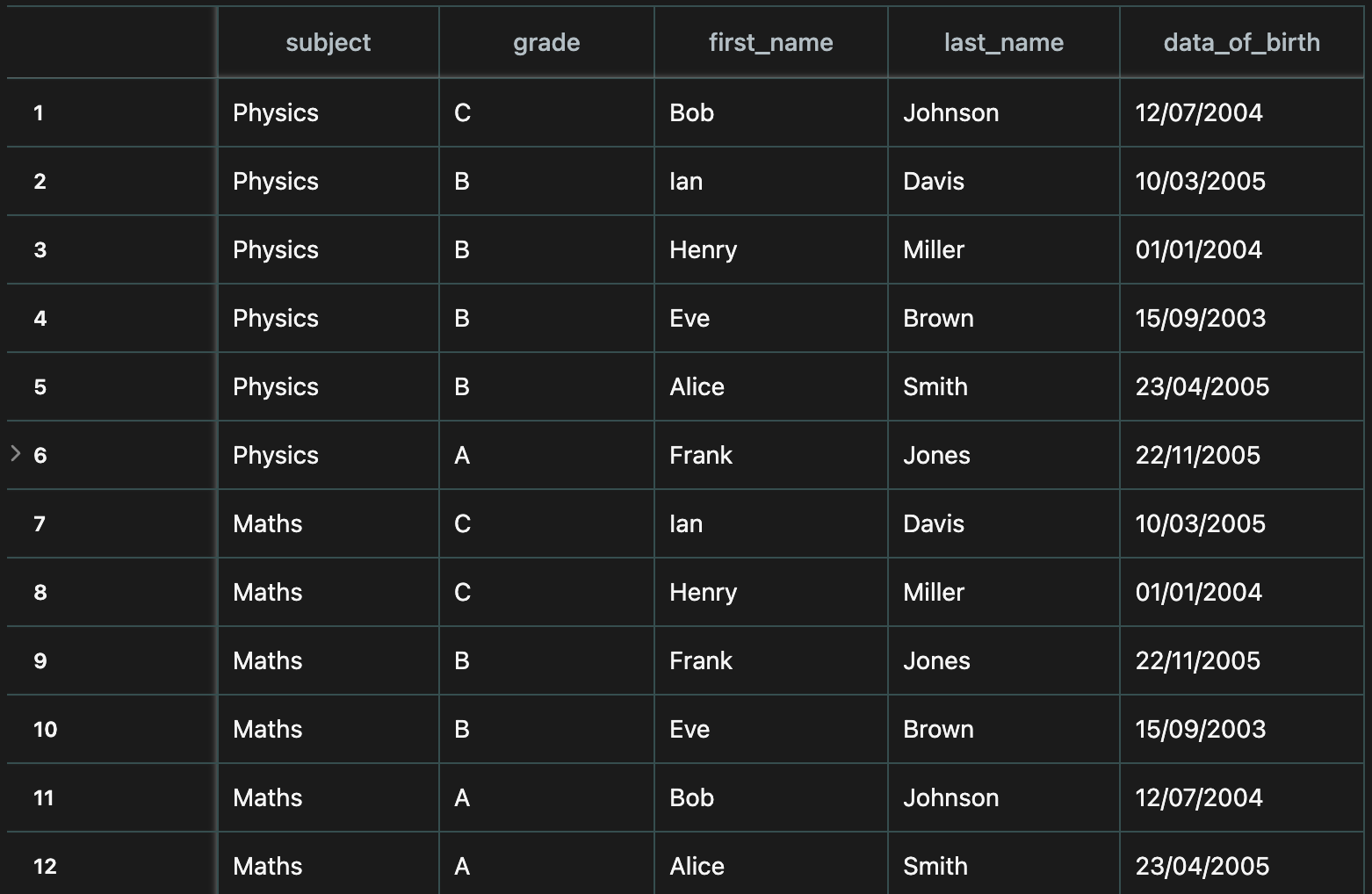x, y, msg and score above are all entries.
Entry Contexts
Aside from logging contexts, we can also specify entry contexts.Expand
Expand
 click image to maximize
click image to maximizeExpand
Expand
 click image to maximize
click image to maximizesubject or grade contexts,
then their use avoids the need to pass around the subject or grade contexts explicitly between all inner function calls,
when it’s known that they are constant for all inner computation and logging.
By default, unify.Entries("...") also changes the behaviour of get_logs, returning only the logs which include the entry.
unify.Entries("...", mode="read") which will only impact log getting,
and unify.Entries("...", mode="write") which will only impact log setting.